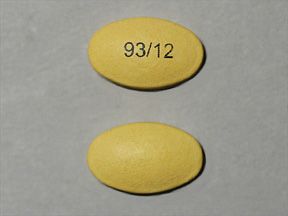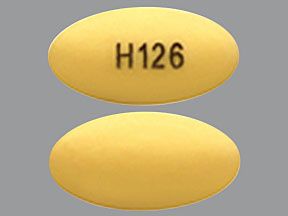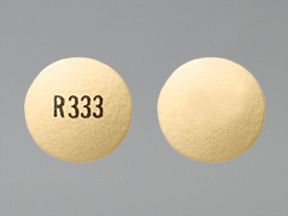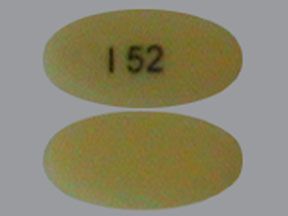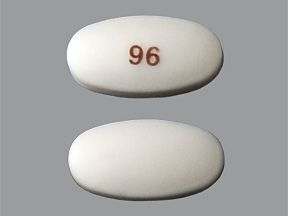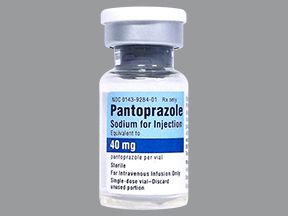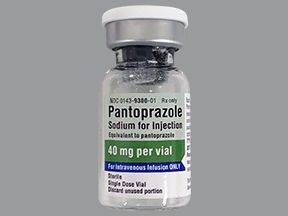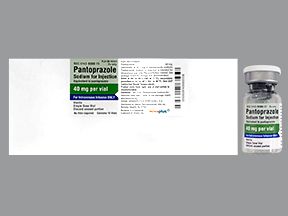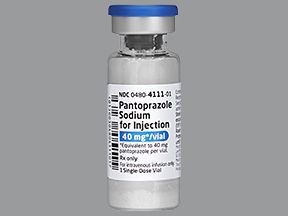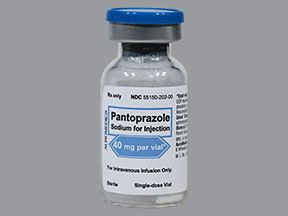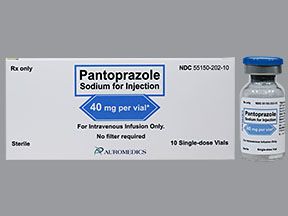Pantoprazole is a generic prescription drug that’s prescribed to treat problems with the esophagus or stomach. Pantoprazole comes as oral tablets that are taken by mouth.
Pantoprazole is used to:
- treat erosive esophagitis (damage to the esophagus that’s caused by stomach acid) related to gastroesophageal reflux disease (GERD) in adults and children ages 5 years and older
- help heal damage to the esophagus that’s caused by erosive esophagitis with GERD in adults
- treat conditions, such as Zollinger-Ellison Syndrome, that cause the body to produce large amounts of stomach acid in adults
To learn more about these conditions and how pantoprazole is used for them, see the “What is pantoprazole oral tablet used for?” section below.
Pantoprazole belongs to a group of drugs called proton pump inhibitors (PPIs).
Note: Pantoprazole also comes as an injection and an oral suspension (a type of liquid mixture). Only the oral tablet is described in this article. If you’d like to learn about pantoprazole’s other forms, talk with your doctor or pharmacist.
Pantoprazole oral tablet brand-name versions
Pantoprazole oral tablets are a generic drug, which means it’s an exact copy of the active drug in a brand-name medication. The brand-name medication that pantoprazole is based on is called Protonix.
Generic drugs are thought to be as safe and effective as the brand-name drug they’re based on. In general, generics usually cost less than brand-name drugs do.
If you’d like to know more about using Protonix instead of pantoprazole, talk with your doctor. You can also read this article to learn more about the differences between generic and brand-name drugs.
Like most drugs, pantoprazole oral tablets may cause mild or serious side effects. The lists below describe some of the more common side effects that pantoprazole may cause. These lists don’t include all possible side effects.
Keep in mind that side effects of a drug can depend on:
- your age
- other health conditions you have
- other medications you may be taking
Your doctor or pharmacist can tell you more about the potential side effects of pantoprazole oral tablets. They can also suggest ways to help reduce side effects.
Mild side effects
Here’s a short list of some of the mild side effects that pantoprazole can cause. To learn about other mild side effects, talk with your doctor or pharmacist, or read pantoprazole oral tablet’s prescribing information.
Mild side effects of pantoprazole oral tablets that have been reported include:
- belly pain
- diarrhea
- dizziness
- flatulence (gas)
- headache
- joint pain
- nausea and vomiting
- weight gain*
- bloating*
- constipation*
Mild side effects of many drugs may go away within a few days or a couple of weeks. But if they become bothersome, talk with your doctor or pharmacist.
* For more information on this side effect, see the “Side effect focus” section below.
Serious side effects
Serious side effects from pantoprazole oral tablets can occur, but they aren’t common. If you have serious side effects from pantoprazole, call your doctor right away. But if you think you’re having a medical emergency, immediately call 911 or your local emergency number.
Serious side effects of pantoprazole oral tablets that have been reported include:
- acute nephritis (sudden inflammation in the kidneys)
- broken bones in your hip, spine, or wrist related to osteoporosis (a condition that causes weak or brittle bones)
- low levels of magnesium
- low levels of vitamin B12
- lupus (an autoimmune disease that causes inflammation throughout the body)
- polyps (small growths of tissue) in the upper area of your stomach, especially with long-term use
- severe diarrhea related to an infection called Clostridium difficile (a type of bacteria that causes the colon to swell)
- severe skin reactions, including:
- allergic reaction*
* For more information on this side effect, see the “Side effect focus” section below.
Side effect focus
Learn more about some of the side effects pantoprazole oral tablets may cause.
Weight gain
You may have weight gain while you’re taking pantoprazole oral tablets. Both weight gain and weight loss were reported after the drug’s initial studies were done.
Additionally, you may gain weight if you have edema (swelling) or bloating, which are possible side effects of pantoprazole. For more information about bloating, see the section below.
What might help
Pantoprazole is used to treat gastroesophageal reflux disease (GERD) and other conditions caused by your body making too much stomach acid. With GERD, you may have nausea and trouble swallowing. This can lead to loss of appetite, which may cause weight loss.
Your GERD symptoms should lessen after you start taking pantoprazole. This could improve your appetite. You may gain weight as you start eating like usual again. The weight gain may not be caused by pantoprazole itself. Instead, it could be a sign that your appetite is returning as your condition is treated.
If you’re concerned about gaining weight while you’re taking pantoprazole, talk with your doctor. They can suggest healthy ways to manage your weight.
Bloating
You may have bloating while you’re taking pantoprazole oral tablets. With bloating, you have tightness, fullness, or swelling in your belly.
Bloating wasn’t a common side effect in studies of the drug. But bloating is often a symptom of other common side effects of pantoprazole.
For example, common side effects of the drug that may have bloating as a symptom include:
- belly pain
- diarrhea, including severe diarrhea caused by an infection called Clostridium difficile (a type of bacteria that causes your colon to swell)
- flatulence (gas)
In some cases, bloating can be a sign of serious kidney problems. This includes acute nephritis (sudden inflammation in the kidneys), which is a possible serious side effect of pantoprazole.
What might help
Tell your doctor if you have bloating while you’re taking pantoprazole oral tablets. They may be able to recommend ways to help reduce your bloating.
If needed, your doctor may order kidney function tests for you to see if kidney problems are a possible cause of your bloating.
Constipation
You may have constipation while you’re taking pantoprazole oral tablets. But this wasn’t a common side effect in studies of the drug.
Constipation can cause symptoms including:
- feeling full after a bowel movement
- painful bowel movements
- passing hard stools
- taking a longer time than usual to pass stools
What might help
Tell your doctor about any constipation you have while you’re taking pantoprazole oral tablets.
If you have constipation, it’s important to drink water or eat foods that will help you stay hydrated. Certain foods, such as high-fiber foods, can also help relieve constipation. Raw fruits, whole grains, and vegetables are examples of high-fiber foods.
Stool softeners and laxatives are available over the counter without a prescription. These medications can help relieve your constipation. But be sure to check with your doctor or pharmacist before taking any new drugs with pantoprazole.
Allergic reactionSome people may have an allergic reaction to pantoprazole oral tablets.
Symptoms of a mild allergic reaction can include:
- rash
- itchiness
- flushing (temporary warmth, redness, or deepening of skin color)
A more severe allergic reaction is rare but possible. Symptoms of a severe allergic reaction can include swelling under your skin, typically in your eyelids, lips, hands, or feet. They can also include swelling of your tongue, mouth, or throat, which can cause trouble breathing.
Call your doctor right away if you have an allergic reaction to pantoprazole oral tablets. But if you think you’re having a medical emergency, call 911 or your local emergency number.
If you have problems with your esophagus or stomach, your doctor may prescribe pantoprazole for you.
It’s a prescription drug that’s used to:
- Treat erosive esophagitis related to gastroesophageal reflux disease (GERD). For this use, the drug is given to adults and children ages 5 years and older. Erosive esophagitis describes damage to your esophagus that’s caused by your body making too much stomach acid. GERD is described as having symptoms of acid reflux (heartburn) more than twice each week. Heartburn can feel like pain or burning in your chest that spreads up into your neck.
- Help heal damage to the esophagus that’s caused by erosive esophagitis. For this use, the drug is given to adults with GERD.
- Treat conditions that cause the body to produce large amounts of stomach acid. Zollinger-Ellison Syndrome is an example of these conditions. It’s caused by tumors that make the stomach produce large amounts of acid. For this use, pantoprazole is given to adults.
Pantoprazole belongs to a group of drugs called proton pump inhibitors (PPIs). It works by blocking certain enzymes (types of proteins) from pumping acid into your stomach.
Your doctor will recommend the dosage of pantoprazole that’s right for you. Below are commonly used dosages, but always take the dosage your doctor prescribes.
Form and strengths
Pantoprazole comes as oral tablets that you’ll take by mouth.
They come in the following strengths:
- 20 milligrams (mg)
- 40 mg
Recommended dosages
The usual dosage of pantoprazole varies, depending on the reason you’re taking the drug.
You’ll take pantoprazole oral tablets either once or twice per day.
You can take pantoprazole any time of day. There isn’t a best time of day to take the drug. But, you should try and take your doses at the same time each day.
Questions about pantoprazole’s dosage
Below are some common questions about pantoprazole dosage.
- What if I miss a dose of pantoprazole? If you miss a dose of pantoprazole, take the missed dose as soon as you remember. If it’s almost time for your next dose, skip the missed dose. You can take your next dose at its usual time. Do not take two doses to make up for a missed dose. Doing so can increase your risk for side effects from the drug. If you aren’t sure whether to take a dose or skip it, talk with your doctor or pharmacist.
- Will I need to use pantoprazole long term? Pantoprazole oral tablets may be used either short term or long term. The amount of time you’ll take the drug depends on the condition you’re using it to treat. Talk with your doctor about whether you’ll take pantoprazole oral tablets for short-term or long-term use. (Note: Use of pantoprazole for periods longer than 12 months have not been studied.)
- How long does pantoprazole take to work? Pantoprazole starts working to help prevent or lessen your symptoms within a few hours after you take it.
Your doctor will explain how you should take pantoprazole oral tablets. They’ll also explain how much to take and how often. Be sure to follow your doctor’s instructions. Below are commonly used dosages, but always take the dosage your doctor prescribes.
Taking pantoprazole oral tablet
You’ll take pantoprazole oral tablets by mouth.
They come in the following strengths:
- 20 milligrams (mg)
- 40 mg
Questions about taking pantoprazole oral tablet
Here’s a list of questions related to taking pantoprazole oral tablets.
- Can pantoprazole oral tablets be chewed, crushed, or split? No, you should not chew, crush, or split pantoprazole tablets. You should swallow the tablets whole. If you have trouble swallowing 40-mg pantoprazole tablets, you may be able to take two 20-mg tablets instead. Depending on the manufacturer of the tablets, 20-mg tablets may sometimes be smaller. Talk with your doctor or pharmacist to learn more.
- Should I take pantoprazole oral tablets with food? You can take pantoprazole with food or without it.
Questions for your doctorYou may have questions about pantoprazole oral tablets and your treatment plan. It’s important to discuss all your concerns with your doctor.
Here are a few tips that might help guide your discussion:
- Before your appointment, write down questions like:
- How will pantoprazole oral tablets affect my body, mood, or lifestyle?
- Bring someone with you to your appointment if doing so will help you feel more comfortable.
- If you don’t understand something related to your condition or treatment, ask your doctor to explain it to you.
Remember, your doctor and other healthcare professionals are available to help you. And they want you to get the best care possible. So, don’t be afraid to ask questions or offer feedback on your treatment.
Taking medications, vaccines, foods, and other things with a certain drug can affect how the drug works. These effects are called interactions.
Before taking pantoprazole oral tablets, be sure to tell your doctor about all medications you take, including prescription and over-the-counter types. Also describe any vitamins, herbs, or supplements you use. Your doctor or pharmacist can tell you about any interactions these items may cause with pantoprazole oral tablets.
Interactions with drugs or supplements
Pantoprazole oral tablets can interact with several types of drugs, including:
- iron supplements
- thiazide diuretics, such as hydrochlorothiazide (Microzide)
- certain HIV drugs, including:
- the protease inhibitors atazanavir (Reyataz), nelfinavir (Viracept), and saquinavir (Invirase)
- rilpivirine (Edurant)*
- certain cancer drugs, including:
- certain immunosuppressant drugs, including:
- methotrexate (Trexall)
- mycophenolate mofetil (CellCept)
- certain antifungal drugs, including:
- itraconazole (Sporanox)
- ketoconazole
- the blood thinner drug warfarin (Jantoven)
- the antiplatelet drug clopidogrel (Plavix)
- the heart failure drug digoxin (Lanoxin)
This list does not contain all types of drugs that may interact with pantoprazole oral tablets. Your doctor or pharmacist can tell you more about these interactions and any others that may occur with the use of pantoprazole oral tablets.
* Because of this interaction, you should not take rilpivirine if you’re taking pantoprazole.
Other interactions
Pantoprazole oral tablets can cause false-positive results on certain lab tests.
Specifically, the drug can do this on a test for neuroendocrine tumors. (A neuroendocrine tumor is a rare type of cancer that grows around the pancreas.)
If you have a neuroendocrine tumor, your doctor will have you stop taking pantoprazole for 2 weeks before giving you this lab test. This will help lessen the risk of pantoprazole causing a false-positive result on the test.
Additionally, pantoprazole can also cause false-positive test results for cannabis (marijuana) on a urine drug screen. But this depends on the specific type of drug test that’s used.
Before taking a drug test or other lab test, make sure your doctor knows you’re taking pantoprazole. This will help them correctly interpret your test results.
Some important things to discuss with your doctor when considering using pantoprazole oral tablets include:
- other medical conditions you have
- other medications you take
- your overall health
These considerations and others are described below in more detail.
Warnings
Pantoprazole oral tablets may not be right for you if you have certain medical conditions or other factors that affect your health. Talk with your doctor about your health history before you take pantoprazole oral tablets. Factors to consider include those in the list below.
- Low level of magnesium. Tell your doctor if you have a low level of magnesium in your blood before starting pantoprazole oral tablets. Pantoprazole can lower your magnesium level even more. Your doctor may check your magnesium level during treatment with this drug.
- Lupus. Pantoprazole oral tablets can worsen lupus symptoms. Lupus is an autoimmune disease that causes inflammation throughout the body. Be sure to tell your doctor if you havelupusbefore starting pantoprazole. They’ll closely monitor your condition while you take this drug. Or, they may prescribe a treatment other than pantoprazole for your condition.
- Neuroendocrine tumors. Before starting pantoprazole oral tablets, tell your doctor if you have a neuroendocrine tumor. This is a rare type of cancer that grows around the pancreas. Pantoprazole can cause a false-positive result on a lab test used for this type of cancer. Your doctor will have you wait 2 weeks after you’ve stopped taking pantoprazole before ordering the test for you.
- Osteoporosis. Before taking pantoprazole oral tablets, tell your doctor if you have osteoporosis (a condition that causes weak or brittle bones). Pantoprazole can cause broken bones in your hip, spine, or wrist related to osteoporosis. If you have osteoporosis before starting pantoprazole, you may have a higher risk for this side effect. To lower your risk for broken bones, your doctor will prescribe pantoprazole for the shortest amount of time needed to treat your condition.
- Stomach cancer. The conditions that pantoprazole treats, such as gastroesophageal reflux disease (GERD), can cause symptoms that are similar stomach cancer. Your doctor may order lab tests for stomach cancer even if your symptoms ease during pantoprazole treatment.
- Allergic reaction. If you’ve had an allergic reaction to pantoprazole oral tablets or any of their ingredients, you should not take pantoprazole oral tablets. Ask your doctor what other medications are better options for you.
Pantoprazole oral tablets and alcohol
There aren’t any known interactions between alcohol and pantoprazole oral tablets.
But alcohol may worsen gastroesophageal reflux disease (GERD), which pantoprazole is used to treat. (GERD is a severe form of acid reflux.) So if you drink alcohol while taking pantoprazole for GERD, the drug may not work as well for you.
If you drink alcohol, talk with your doctor about the amount that’s safe for you to drink while you’re taking pantoprazole.
Pregnancy and breastfeeding
It isn’t known for sure if pantoprazole oral tablets are safe to take during pregnancy. If you’re pregnant or planning a pregnancy, talk with your doctor before starting pantoprazole.
Pantoprazole passes into your breast milk if you’re breastfeeding. But it isn’t known for sure if the drug causes side effects in a child who’s breastfed. Talk with your doctor about the benefits and risks of taking pantoprazole while breastfeeding.
Find answers to some commonly asked questions about pantoprazole oral tablets.
What should I know about pantoprazole vs. famotidine?
Pantoprazole belongs to a group of drugs called proton pump inhibitors (PPIs). Famotidine (Pepcid), on the other hand, belongs to a group of drugs called H2 receptor blockers.
Pantoprazole and famotidine are used to treat problems with your esophagus or stomach. But, PPIs and H2 receptor blockers work in different ways to treat these conditions.
If you have questions about how pantoprazole compares with famotidine, talk with your doctor or pharmacist. They can recommend the type of drug that’s right for your condition.
Does pantoprazole treat gastritis or ulcers?
Pantoprazole isn’t approved to treat gastritis or ulcers. But the drug is sometimes used off-label for these purposes. (With off-label use, a drug is given for a condition it hasn’t been approved to treat.)
Gastritis is a condition that causes the lining of your stomach to swell. Ulcers are painful sores on the lining of your stomach. Both of these conditions can lead to symptoms such as nausea, vomiting, and indigestion.
Gastritis and ulcers are sometimes caused by certain drugs or bacteria. Pantoprazole may be used to treat or help prevent gastritis and ulcers in these situations.
If you’re interested in using pantoprazole for gastritis or ulcers, talk with your doctor.
Is pantoprazole used for anxiety?
Pantoprazole isn’t currently approved to treat anxiety. But pantoprazole is sometimes used off-label for this purpose. (With off-label use, a drug is given for a condition it hasn’t been approved to treat.)
If you have anxiety, you may have a higher risk for gastroesophageal reflux disease (GERD). And pantoprazole is approved to treat GERD.
Pantoprazole may not treat your anxiety, but the drug can be used to help manage GERD, which is a possible symptom of anxiety.
To learn more about using pantoprazole for symptoms of anxiety, talk with your doctor.
How does pantoprazole work?
Pantoprazole belongs to a group of drugs called proton pump inhibitors (PPIs).
It works by blocking certain enzymes (types of proteins) from pumping acid into your stomach. The way a drug works in your body is called its “mechanism of action.”
Do I need a prescription for pantoprazole?
Yes, you’ll need a prescription from your doctor for pantoprazole. It isn’t currently available over the counter (OTC).
Pantoprazole belongs to a group of drugs called proton pump inhibitors (PPIs). Other PPIs are available OTC, without a prescription.
Examples of PPIs that are available OTC include:
- esomeprazole (Nexium)
- lansoprazole (Prevacid)
- omeprazole (Prilosec)
If you’re interested in using pantoprazole, talk with your doctor. They can tell you if pantoprazole is right for treating your condition.
Are pantoprazole and Nexium similar?
Both pantoprazole and esomeprazole (Nexium) belong to a group of drugs called proton pump inhibitors (PPIs). Both drugs are used to treat similar conditions.
To learn more about Nexium, see this in-depth article. You can also talk with your doctor about which drug is right for you.
You may like to learn how Pantoprazole and omeprazole (Prilosec) compare. The chart below offers a quick overview of the two drugs.
| pantoprazole | omeprazole | |
| Brand-name version | Protonix | Prilosec |
| Form | • oral tablet | • oral capsule • tablet* • liquid suspension (type of liquid solution) |
| Uses | pantoprazole is used to treat: • erosive esophagitis related to gastroesophageal reflux disease (GERD) in adults and children 5 years and older • hypersecretory conditions, such as Zollinger-Ellison Syndrome in adults | omeprazole is used to treat: • gastric or duodenal ulcers in adults • GERD in adults • erosive esophagitis related to GERD in adults and children 5 years and older • hypersecretory conditions in adults • stomach infections caused by certain bacteria in adults |
* Omeprazole oral solution is only available as the brand-name drug Prilosec. Other forms are available as generic medications.
These drugs have similar potential side effects, but there are some differences. For further details, see the prescribing information for pantoprazole. You can also view this information for omeprazole oral capsules, oral tablets, and oral suspension.
Some of these medications are available over the counter (OTC), while others require a prescription from your doctor. To be safe, check with your doctor or pharmacist before taking any OTC drugs.
If you have questions about how pantoprazole compares with omeprazole, talk with your doctor or pharmacist. They will recommend the drug that’s right for your condition.
Costs of prescription drugs can vary depending on many factors. These factors include what your insurance plan covers and which pharmacy you use.
Financial assistance to help you pay for pantoprazole oral tablets may be available. Medicine Assistance Tool and NeedyMeds are two websites that provide resources to help reduce the cost of pantoprazole oral tablets.
These websites also offer tools to help you find low cost healthcare and certain educational resources. To learn more, visit their websites.
For more information about the price of pantoprazole, you can see this related article.
Do not take more pantoprazole oral tablets than your doctor prescribes. Using more than this can lead to serious side effects.
What to do in case you take too much pantoprazole
Call your doctor if you think you’ve taken too much pantoprazole. You can also call 800-222-1222 to reach America’s Poison Centers or use its online resource. But if you have severe symptoms, immediately call 911 (or your local emergency number) or go to the nearest emergency room.
Pantoprazole is a prescription drug that’s used to treat problems with your esophagus or stomach that are caused by having too much stomach acid.
To learn more about how this drug is used, see the “What is pantoprazole oral tablet used for?” section above. If you have questions about using pantoprazole for these purposes, talk with your doctor.
Other treatment options are also available for these conditions. You can learn more about these treatments by reading this article.
Below is a list of questions you can ask your doctor about pantoprazole oral tablets:
- Should I use other treatments for gastroesophageal reflux disease (GERD) while I’m taking pantoprazole?
- Will my GERD symptoms come back if I stop using pantoprazole?
- How long should I keep taking pantoprazole?
To learn more about pantoprazole, see these articles:
- Pantoprazole and Cost: What You Need to Know
- Side Effects of Pantoprazole Oral Tablet: What You Need to Know
To get information on different conditions and tips for improving your health, subscribe to any of Healthline’s newsletters. You may also want to check out the online communities at Bezzy. It’s a place where people with certain conditions can find support and connect with others.
Q:
Can I take pantoprazole oral tablets to stop symptoms of acid reflux that are currently happening?
AnonymousA:
Maybe. Pantoprazole is used to treat symptoms of gastroesophageal reflux disease (GERD). GERD is described as having symptoms of acid reflux (heartburn) more than twice each week.
If you have acid reflux more than two times a week, your doctor may prescribe pantoprazole to help reduce your symptoms. But, if you have acid reflux symptoms less often, using over-the-counter (OTC) products instead of pantoprazole may be a better option for you.
Pantoprazole starts working to help prevent or lessen your symptoms within a few hours after you take it.
Some OTC treatments may be taken together with pantoprazole, if pantoprazole doesn’t relieve your symptoms quickly enough. For example, OTC antacids may be used with pantoprazole.
Talk with your doctor or pharmacist to see which treatment option might be right for you.
The Healthline Pharmacist TeamAnswers represent the opinions of our medical experts. All content is strictly informational and should not be considered medical advice.Disclaimer: Healthline has made every effort to make certain that all information is factually correct, comprehensive, and up to date. However, this article should not be used as a substitute for the knowledge and expertise of a licensed healthcare professional. You should always consult your doctor or another healthcare professional before taking any medication. The drug information contained herein is subject to change and is not intended to cover all possible uses, directions, precautions, warnings, drug interactions, allergic reactions, or adverse effects. The absence of warnings or other information for a given drug does not indicate that the drug or drug combination is safe, effective, or appropriate for all patients or all specific uses.

